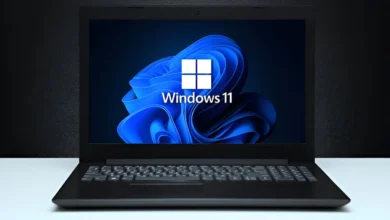
When setting up a network, one key choice is between static and dynamic IP addresses. Each option offers different benefits depending on your needs, whether for everyday browsing or business functions requiring reliable connections. Let’s explore the factors to consider when choosing between these IP address types to make the best choice for your network setup.
Key Considerations for Choosing Static vs. Dynamic IP Addresses
Understanding the specific advantages of each IP type will help you decide which is best suited to your network requirements.
1. Determine the Nature of Your Network Use
The first step is to evaluate how you intend to use your network. A static IP provides a consistent point of access if you run a home or business server, such as for email or web hosting. However, a dynamic IP is often more than sufficient for general use like web browsing or streaming. Home users who prioritize ease and affordability generally find dynamic IPs ideal, while business networks often benefit from static IPs.
2. Assess the Importance of Remote Access
A static IP address is advantageous if you require frequent remote access to devices on your network. Static IPs simplify remote connections because the address remains the same, allowing you to log in from anywhere without needing to check for an updated IP address. For instance, logging into a security system or work server remotely is more reliable with a static IP. You can check your router’s capabilities through 192.168.1.1 to confirm if it supports static IP assignment for enhanced remote access.
3. Consider Cost and Availability
Another factor to consider is the cost associated with each type. Dynamic IP addresses are typically included in standard ISP packages at no additional cost, making them the more budget-friendly option. In contrast, static IP addresses can incur additional fees, especially from providers who charge a premium for this service. If your budget is limited or you only need basic connectivity, a dynamic IP address may be the better choice.
4. Evaluate Security Needs
Both IP types have unique security implications. Dynamic IP addresses provide an extra layer of security because they change regularly, making it harder for unauthorized users to track your network. On the other hand, static IP addresses, while easy to locate, can benefit from added security measures such as VPNs and firewalls. If security is a high priority, particularly for business applications, consider pairing a static IP with robust security protocols to mitigate risks.
5. Examine Device Compatibility
Some devices and applications work better with specific IP types. For instance, security cameras, printers, and IoT devices generally benefit from static IPs for stable connectivity. Dynamic IPs, however, are often ideal for laptops, tablets, and mobile devices that frequently connect to different networks. Choosing an IP type that aligns with your device needs helps prevent connectivity issues and maintains smooth functionality.

6. Account for Ease of Network Management
Static IPs provide consistency, simplifying network management, especially in business settings where multiple devices need consistent access. However, dynamic IPs offer a more hands-off approach for home networks or setups with less complex needs. ISPs handle IP assignment and updates automatically with dynamic IPs, minimizing manual management. For a simpler network experience, dynamic IPs are often more convenient and user-friendly.
Conclusion
Overall, choosing between static and dynamic IP addresses depends on your specific needs for connectivity, security, and convenience. Dynamic IPs are typically the best option for general use and cost-effectiveness, especially for home networks. However, if you need reliable access for hosting or remote work, a static IP is likely the better choice. Assess your requirements carefully and consult your router’s settings via http //192.168.1.1 to determine which IP configuration will best serve your network’s needs.

















